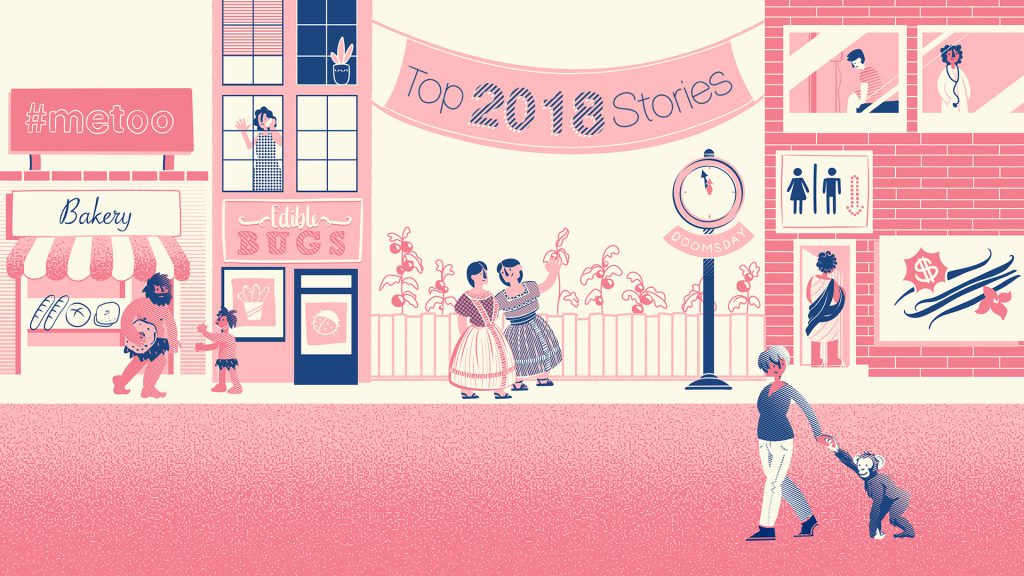Best of SAPIENS 2018

Thanks to our excellent contributors, we had more than 80 articles to choose from in voting for our favorite SAPIENS pieces of 2018. After much deliberation, we chose the following as our top 10 of the year, listed in the order they were published.
—The SAPIENS Editorial Team
Is the Clock Ticking Toward Doomsday?
Dean Falk
The news hints that we are getting closer to Armageddon—but some say we are more peaceful now than in the past. How do we make sense of this contradiction?
What Did Ancient Romans Do Without Toilet Paper?
Stephen E. Nash
Hint: It involved a long stick, sea sponge, and bucket of vinegar.
Letting Silence Have a Voice in #MeToo
Emma Louise Backe
Storytelling plays a vital role in addressing sexual assault, but what of the safety and well-being of survivors—both those who speak out and those who don’t?
When Doctors Don’t Listen
Aaron J. Jackson
An anthropologist with chronic Lyme disease has seen firsthand the perils of the Western world’s dysfunctional approach to treating misunderstood diseases.
Following a New Trail of Crumbs to Agriculture’s Origins
Tobias Richter and Amaia Arranz-Otaegui
Archaeologists have found tiny pieces of ancient bread from hunter-gatherers that predate agriculture by about 4,000 years.
The Hidden Resilience of “Food Desert” Neighborhoods
Barry Yeoman
Anthropologists and other scholars are delving into the plight of urban communities where people struggle to meet their nutritional needs. In the process, these researchers are discovering the power—and limits—of self-reliance.
Bracing for the Vanilla Boom
Annah Zhu
Some of Madagascar’s farmers, made wealthy by this year’s vanilla crop, will spend their cash in crazy “hot money” sprees. But their profligate spending may not be as illogical as it first appears.
Why Are So Many Guatemalans Migrating to the U.S.?
Emily Yates-Doerr
As poverty and violence force Guatemalans to leave their country, one anthropologist reflects on her work with Indigenous peoples in the highlands—and shows how the U.S. is implicated in its own “migrant crisis.”
For Chimps, Human Touch Can Hurt
Amy Hanes
An anthropologist spent two years studying care at chimpanzee sanctuaries in Cameroon. She left with a deeper appreciation of how human contact, though necessary to rehabilitate and heal rescued wildlife, can also leave lasting scars.
Why Don’t More Humans Eat Bugs?
Esther Landhuis
Around the world, at least 2 billion people routinely consume insects. One anthropologist believes geography and colonization can explain why some populations are too squeamish to stomach such foods.


























